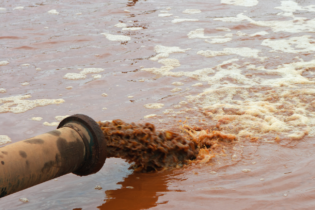Whether you live in the United States or in Ethiopia, sanitation and proper hygiene is an issue that affects you, but in Ethiopia, the lack of convenient water sources can make the difference between life and death.
According to the Centers for Disease Control and Prevention, unsafe drinking water, inadequate availability of water for hygiene and lack of access to sanitation together contribute to about 88% of deaths from diarrheal diseases, or more than 1.5 million of the 1.9 million children younger than five years of age who perish from diarrhea each year, mostly in developing countries. This amounts to 18% of all the deaths of children under the age of five and means that more than 5 000 children are dying every day as a result of diarrheal diseases. Water and sanitation-related diseases, particularly diarrhea, are among the top three causes of death in Ethiopia. Health indicators clearly show that Ethiopia has serious problems in the areas of primary health care and disease prevention. Very high infant and child mortality rates, a high prevalence of HIV/AIDS and low life expectancy point to a lack of basic services and under-developed infrastructure. Water and sanitation-related diseases, are among the top three causes of death in the country after malaria and HIV/AIDS. According to Demographic and Health Survey data for children under five in the Amhara region, 51.8% are malnourished; stunting affects 57%; and severe stunting affects 29 percent. In the Amhara region’s South Gondar zone, access to safe water is still not assured for many households and a lack of sanitation and poor hygiene practices contribute significantly to children’s ill health and constrained opportunities. This is where the partnership between CARE and Johnson & Johnson comes into play. Johnson & Johnson is partnering with CARE to bring adequate latrines and hand washing stations to 48 schools in the Amhara region of Ethiopia. Thirty new wells will be dug and 15 others will be rehabilitated. Eighteen schools will receive new latrines and hand washing stations and most others will see general improvements. Teachers will be trained to integrate hygiene education into the daily life of their students by developing sanitation clubs that will use music and drama to bring the sanitation message to the broader community. These clubs will also generate awareness of menstrual management for school girls, parents and teachers. They will also provide affordable sanitary pads for 4,000 girls in school shops. Worknesh Wubetu, a 14-year-old and seventh grade student at Kanat school in Farta district of Amhara Region, lives with seven brothers and sisters who are all school aged children. Worknesh is a member of the Hygiene and Sanitation club at Kanat School and she recalls that her school’s facilities were woefully inadequate. “The latrine in our school was dirty and smelled. School children used to open-defecate in the compound,” says Worknesh. “Moreover, there were no waste disposal pits in the school and before the CARE project, no one felt comfortable discussing menstrual hygiene with family members, school friends, or teachers. We used to practice unsafe hand-washing and our families didn’t have a good understanding of the benefit of sanitation and hygiene. Some practiced open defecation although they had pit latrines in their back yards.” CARE aspires to impact the way that the broader community manages and uses critical water resources. CARE is providing practical training for local government agents and will construct soil conservation structures to combat erosion.. Community members will be encouraged to plant fruit trees for both nutritional and economic benefit. Water sources will be protected from grazing animals, thus improving the cleanliness of water used by humans.After her engagement in the School Hygiene and Sanitation Club, Worknesh explains that “the training I received with my fellow club members has changed my life positively.”
Worknesh added that the training enabled the school sanitation clubs to accomplish the following: • Conduct weekly training to fellow students on sanitation and hygiene. • Hold continuous discussion on proper hand- washing practices, menstrual hygiene management, and other issues impacting their education. This in turn significantly improves health and school attendance. • School children excavated waste disposal pits in the school compound and now dispose of liquid and solid wastes in these pits. • Cleaned class room floors, walls and school latrines, collects and disposes solid wastes in the school compound every Friday. • Members of hygiene and sanitation club advised their families and neighbors on the health benefit of sanitation and hygiene practices and safe disposal of feces. Worknesh concluded her comment by saying “thanks to the project, I can see a change in my family and neighbors. We all understand the importance of proper latrine and solid and liquid management. The project has also helped our school and village become Open Defection Free. We all feel very proud of our village and are happy to attend school.” It’s stories, like Worknesh’s, that make us realise the importance clean water practices and the impact that this can have on our children, our future. Source: huffingtonpost.com





